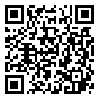Volume 12, Issue 3 (September 2025)
Avicenna J Neuro Psycho Physiology 2025, 12(3): 156-165 |
Back to browse issues page
Ethics code: IR.IAU.NAJAFABAD.REC.1402.373
Download citation:
BibTeX | RIS | EndNote | Medlars | ProCite | Reference Manager | RefWorks
Send citation to:



BibTeX | RIS | EndNote | Medlars | ProCite | Reference Manager | RefWorks
Send citation to:
Ghaheri P, Bahramipour Isfahani M, Torkan H. Comparison of the Effect of Dialectical Behavior Therapy and Adolescent-centered Mindfulness Therapy on Impulsivity and Depression in Adolescents with Disruptive Mood Dysregulation Disorder. Avicenna J Neuro Psycho Physiology 2025; 12 (3) :156-165
URL: http://ajnpp.umsha.ac.ir/article-1-543-en.html
URL: http://ajnpp.umsha.ac.ir/article-1-543-en.html
1- Department of Psychology, Isf.C., Islamic Azad University, Isfahan, Iran.
2- Department of Psychology, Isf.C., Islamic Azad University, Isfahan, Iran. ,bahramipourisfahani@gmail.com
2- Department of Psychology, Isf.C., Islamic Azad University, Isfahan, Iran. ,
Abstract: (448 Views)
Background and Objective: This study aimed to compare the effect of dialectical behavior therapy (DBT) and adolescent-centered mindfulness therapy (ACMT) on impulsivity and depression in adolescents with disruptive mood dysregulation disorder (DMDD).
Materials and Methods: This quasi-experimental study was conducted based on a pretest-posttest design with a two-month follow-up. The statistical population included all adolescents aged 15-18 years in Najafabad, Iran, during the academic year 2023-2024. The participants included 60 cases who were selected via the purposive sampling method based on the inclusion criteria specified in the study, and randomly assigned to three groups (20 subjects in each group). The research instruments included the Laporte Disruptive Mood Disorder Diagnostic Scale (2019), DSM-5-based diagnostic interview, Barratt Impulsiveness Scale (2004), and Kutcher Adolescents Depression Scale (2002). During research, after completing the questionnaires in the pre-test stage, each experimental group underwent interventions in 60-minute weekly sessions, while the control group did not receive any intervention. After the end of the interventions, the questionnaire was completed by the three groups in post-test and follow-up stages two months later. The data were analyzed in SPSS software (version 26) using the repeated measures analysis of variance and Bonferroni post-test.
Results: Based on the obtained results, both DBT and ACMT exhibited significant effectiveness in the mitigation of impulsivity and depression in adolescents with disruptive mood disorder symptoms, and the effects persisted in the follow-up stage (P<0.05).
Conclusion: The comparison of the two intervention methods revealed that in both post-test and follow-up stages, DBT proved to be more effective than ACMT in the mitigation of impulsivity and depression.
Materials and Methods: This quasi-experimental study was conducted based on a pretest-posttest design with a two-month follow-up. The statistical population included all adolescents aged 15-18 years in Najafabad, Iran, during the academic year 2023-2024. The participants included 60 cases who were selected via the purposive sampling method based on the inclusion criteria specified in the study, and randomly assigned to three groups (20 subjects in each group). The research instruments included the Laporte Disruptive Mood Disorder Diagnostic Scale (2019), DSM-5-based diagnostic interview, Barratt Impulsiveness Scale (2004), and Kutcher Adolescents Depression Scale (2002). During research, after completing the questionnaires in the pre-test stage, each experimental group underwent interventions in 60-minute weekly sessions, while the control group did not receive any intervention. After the end of the interventions, the questionnaire was completed by the three groups in post-test and follow-up stages two months later. The data were analyzed in SPSS software (version 26) using the repeated measures analysis of variance and Bonferroni post-test.
Results: Based on the obtained results, both DBT and ACMT exhibited significant effectiveness in the mitigation of impulsivity and depression in adolescents with disruptive mood disorder symptoms, and the effects persisted in the follow-up stage (P<0.05).
Conclusion: The comparison of the two intervention methods revealed that in both post-test and follow-up stages, DBT proved to be more effective than ACMT in the mitigation of impulsivity and depression.
Keywords: Adolescent-centered mindfulness, Depression, Dialectical behavior therapy, Disruptive mood dysregulation disorder, Impulsivity
Article Type: Research Article |
Subject:
Depression
Received: 2025/09/30 | Accepted: 2025/11/13 | Published: 2025/12/13
Received: 2025/09/30 | Accepted: 2025/11/13 | Published: 2025/12/13
Send email to the article author
| Rights and permissions | |
 |
This work is licensed under a Creative Commons Attribution-NonCommercial 4.0 International License. |







